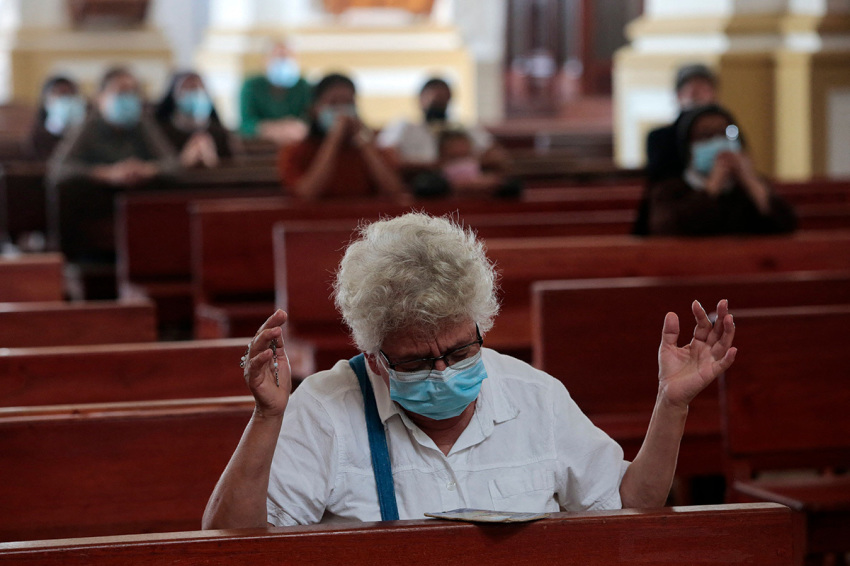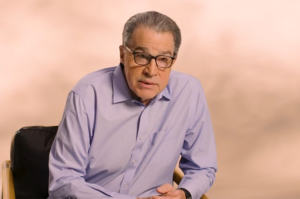Pope Francis expresses 'concern and sorrow' after Nicaraguan police put bishop under house arrest

Speaking from his perch in St. Peters Square, Pope Francis addressed the arrest of a Nicaraguan Catholic bishop who is a known critic of President Daniel Ortega.
Police in Nicaragua raided the house of Roman Catholic Bishop Rolando Álvarez of Matagalpa on Friday and detained him and several other priests and seminarians before putting the bishop and a few others under house arrest, according to reports. The arrests come as tensions between the church and the government have escalated as Ortega has become increasingly intolerant of dissent.
In his address to pilgrims in St. Peter's Square for his weekly blessing, Francis made his first public comments on the matter, expressing concerns about the persecution of Catholic Church leaders deemed a threat to the ruling powers.
“I am following closely, with concern and sorrow, the situation in Nicaragua, which involves both people and institutions,” the pope declared, adding, “I would like to express my conviction and my hope that, through open and sincere dialogue, the basis for a respectful and peaceful coexistence can still be found," Vatican News said on Sunday.
The Nicaraguan federal police claimed they arrested Álvarez in order to “recover normality for the residents and families of Matagalpa,” and had they not arrested him, he would have continued with “destabilizing and provocative activities,” Catholic News Agency reported.
Álvarez is being held under guard at a house in the capital city Managua but was allowed to meet with relatives and Cardinal Leopoldo Brenes, the police were quoted as saying.
Last Monday, police in the local municipality of Mulukuku detained a priest from Holy Spirit Parish, Fr. Oscar Danilo Benavidez Tinoco, after he held the evening Mass, according to Vatican News, which said he was later transferred to a detention center in Managua known as El Chipote where it's believed that dissenters are tortured.
Apart from Álvarez and Tinoco, an unknown number of priests, seminarians and lay people have been under house arrest since Aug. 4 on charges of using media and social networks to promote violence and destabilize the country.
The Nicaraguan congress, dominated by Ortega’s Sandinista National Liberation Front, has ordered the closure of over 1,000 nongovernmental organizations, including Mother Teresa’s charity, PBS reported.
A report by Nicaraguan lawyer Martha Patricia Molina Montenegro, a member of the Pro-Transparency and Anti-Corruption Observatory, says that more than 190 attacks have occurred against the Catholic Church since 2018. She was quoted by CNA as saying that “Ortega fears no one.”
She also stressed that the bishop, priests, seminarians and lay people who were surrounded by the police since Aug. 4 “spent 15 days kidnapped, not detained.”
“The police are acting like a criminal group that does not submit to the rule of law and once again it makes clear that Nicaragua is a dictatorship where they proceed according to the whim and state of mind of President Daniel Ortega and his consort,” she added.
An ideology in Nicaragua portrays Ortega as being “anointed by God … for sacred Nicaragua.”
A trend of persecution started in Nicaragua after protests against reforms to the public pension system in April 2018. The protests came after about a decade of deteriorating economic conditions in the country. Protesters, mostly students, demanded democratic reforms and that President Ortega and his wife, Vice President Rosario Murillo, step down as they allegedly established a dictatorship marked by nepotism and repression.
During the initial days of the 2018 protests, Ortega requested that the Catholic Church act as a mediator. But his administration also began to use brutal force against the protesters and later also on Catholic clergy.
Catholic clergy aided and provided sanctuary to protesters and voiced support for the right to protest peacefully. But as a result, Ortega used his government and supporters to persecute clergy members, worshipers and various Catholic organizations.
Hundreds of people died in the protests in 2018.



























